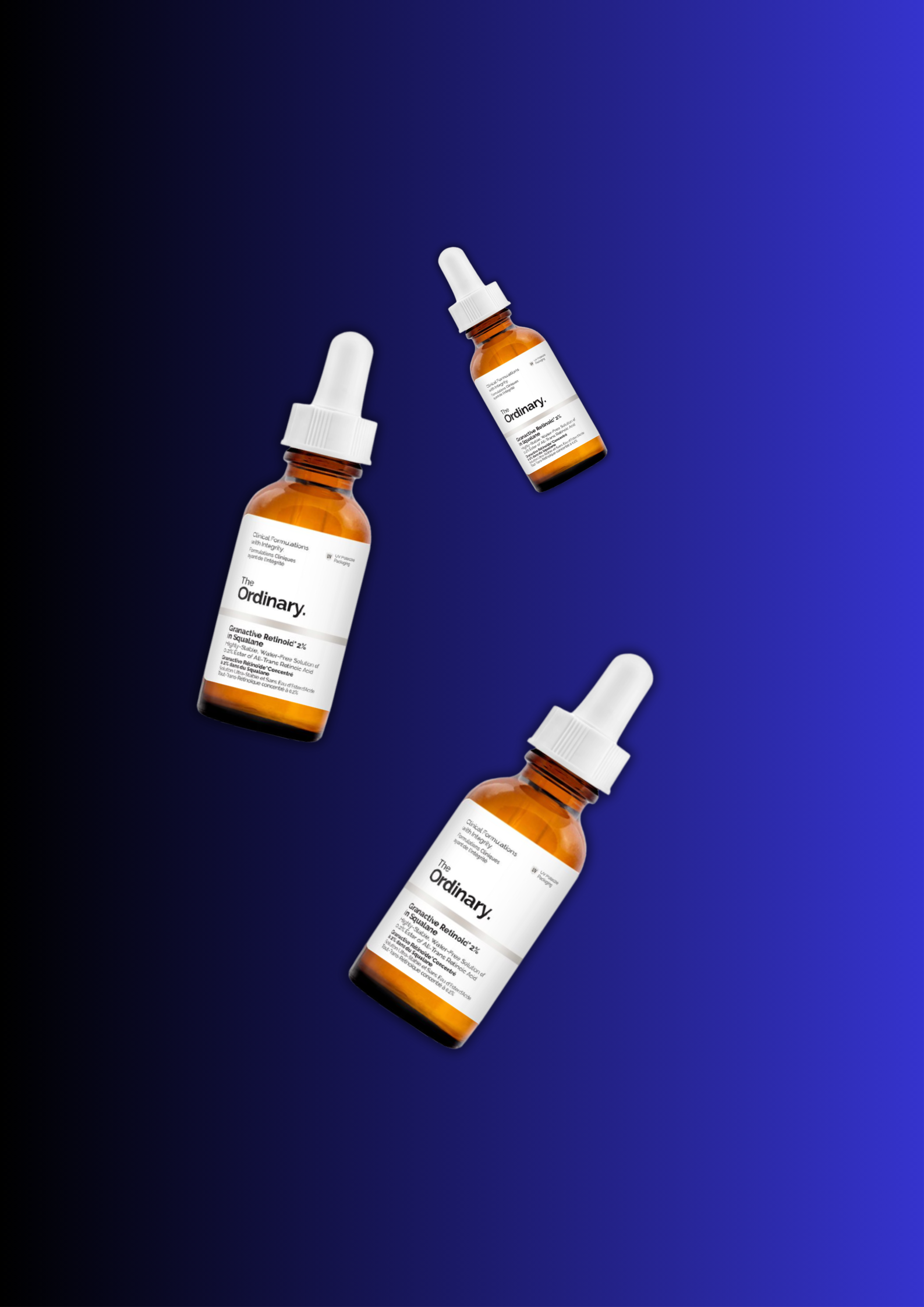For those of you who are extremely skincare savvy, this probably hasn’t crossed your mind BUT there is a large percentage of you searching this question right here! I see you and I wanna answer it for you. So, what the hell is the difference between lactic acid and retinol?
Retinol
Let me revert your memory back to November last year when I explained what retinol is. If you read that post you’ll understand it’s really an ingredient category in and of itself. It’s function is primarily to do with anti-aging.
Here is a little re-cap of what it does; it’s a form of vitamin A, which means you can get a dose of it through your diet through eating things like eggs, cod liver oil, spinach, broccoli etc. It’s one of the most extensively researched skincare ingredients and the results are pretty synonymous, it’s the best chance you’ve currently got to slow down the aging process. It does this via increasing cell turnover, a mechanism that slows down as you age. It simply tells older cells to die faster whilst helping new cells to form more rapidly.
Of course, it has it’s down sides. You can’t use it when pregnant and if you have very sensitive skin chances are you will find retinol way to irritating for your skin. Bakuchiol has become a light in the darkness for those who suffer with these issues (pregnancy is a wondrous achievement).
Lactic Acid
Lactic acid on the other hand, is an exfoliant. It comes under the umbrella of alpha hydroxy acids or AHA’s as the are commonly abbreviated to in the skincare industry. The term alpha hydroxy acids is just to do with their structure, it indicates there is a carboxyl group adjacent to the hydroxyl group. It’s function is chemical exfoliation, exfoliating the uppermost layers of skin to be exact. The size of a molecule of lactic acid is larger than say something like glycolic acid and so it won’t penetrate as far down in the skin. This is why it’s generally recommend as a chemical exfoliant for sensitive skin.
Can you use them together?
Yes! No research anywhere concludes that they make each other less effective. Whilst they both can contribute to keeping your skin looking young via cell turnover they work in different ways and so are fine to use in the same skincare routine, even the same day if you want to!
Always remember to pace yourself, acids and retinol can have quite dramatic effects. The best ways to ease into acids is to start at low concentrations and work your way up. Remember acids work on a pH scale. Seven is the point of neutrality so the closer to zero the concentration is the more acidic it is. Brands like The Ordinary have the pH on the product so is super helpful when deciding which one you want to go for!
If you’re not sure about retinol try bakuchiol first, see if that does anything for you and if it does invest in some retinol and use it once a week with plenty of suncreen!
Product recommendations
Paula’s Choice Clinical 1% Retinol Treatment (5ml) (R)
The Ordinary Retinol 1% in Squalane (30ml) (R)
Paula’s Choice Resist Anti-Aging Retinol Serum (R)
Biossance Squalane + Lactic Acid Resurfacing Night Serum (LA)
Farmacy Honeymoon Glow AHA Resurfacing Night Serum (LA)




Leave a Reply